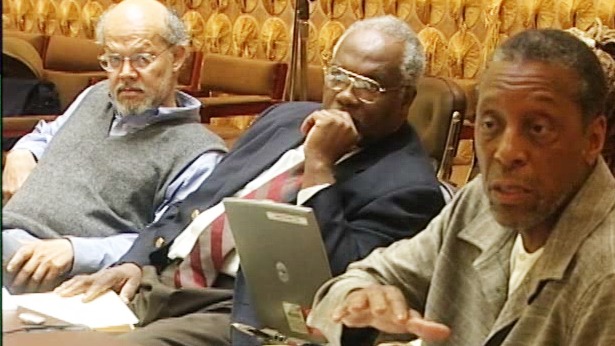Video Recordings of Convening
Recognizing the importance of capturing the spirit, intensity and culture of social relations anticipated when the convening scholars of diverse institutional, theoretical and methodological experiences would meet in March 2006, thomas-houston proposed to videotape the event. Not with just one stagnantly placed camera but a two camera shoot (one wide angle stationary and the other handheld for closeups and reactions).
In the spirit of transparency and ethnographic film production, the visuals have been edited for the purpose of tempo and visually capturing the interaction of the ethnographic moment. However, the audio has only been edited for balance and volume, therefore, it contains the conversation as it occured.
While the text in the special issue of the International Journal of Africana Studies: Sustaining Black Studies in the 21st Century it does not constitute the entirety of the conversations that took place. The exhibits in this database give researchers an opportunity to compare the original hardcopy publication with its digital version and the digital version with the raw materials in order to draw their own interpretations.
The nine videos of the two-day event, "Conversations for Sustaining Black Studies in the 21st Century: A Convening," are created according to the questions they address. Click the links.
